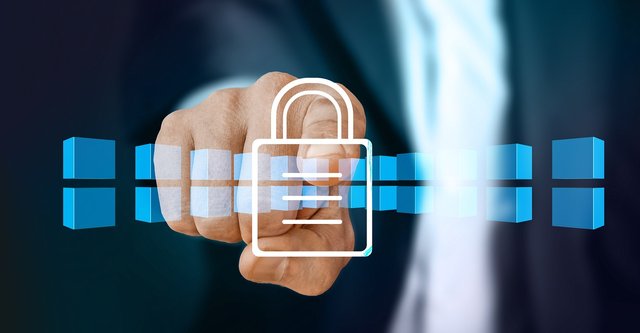In any ecosystem, cryptography is important for communication, verification, and privacy. In the blockchain environment, there have developed cryptographic methods such as Designated Verifier Signature (DVS) that solve such problems. In this case, the signer is permitted to append a signature and specify a single person, often referred to as a ‘designated verifier,’ whose consent is required for verification. In contrast to the previous normal digital signatures which could be verified by anyone DVS limits the verification of signatures to one entity only protecting the privacy and confidentiality of the transaction.
The designing of DVS borrowing from the existing art such as DGTS is wholly appropriate for the blockchain environment where transparency, security, and trust play important roles. The vantagem of DVA signature type is that it allows to the confidentiality of the sorce, even when the material is not imperative, for cases of selective verification. This renders DVS as a major answer for breaches of privacy of sensitive information where only few selected entities can view and access the information that is usually exposed on the public block chain.
With the designated verifier signature, the designated verifier is the one who must approve the transaction as beneficial to them through the signature as the DVS employs several cryptographic techniques. Such a process has advantages such as improving privacy, less transaction exposure and more control in verification and authorization.
MODE OF OPERATION OF DESIGNATED VERIFIER SIGNATURES
Designated Verifier Signatures allow a signer to produce a digital signature which can be verified only by the designated verifier. The signer first creates a conventional digital signature on the message/transaction, which anyone can verify.
In addition, some cryptographic data is embedded into the signature so that (only) the designated verifier with his private key can decrypt it and verify it using his public key. Hence, no one else except for the designated verifier can verify this designator enhanced part of the signature.
For instance in a blockchain transaction, if a user would like to share some sensitive details of the transaction to a specific regulatory body or an institution, it can be guaranteed with designated verifier signature that only that particular entity will be able to verify the details of the transaction and other users in the public blockchain won’t reveal it.
PRIVACY AND CONFIDENTIALITY IN BLOCKCHAIN NETWORK:
One of the major advantages of Designated Verifier Signature in blockchain is the improved privacy it brings. Blockchain networks are known for their transparency because transactions and other data in a blockchain network are visible to the public. However, there are situations where you may require some information to be kept secret. DVS achieves this by ensuring that while a transaction is broadcasted and recorded on the blockchain, only a specific designated verifier has access to and can verify certain details contained in the transaction.
This level of control becomes even more important especially when dealing with use cases in healthcare or finance sector where dealing with sensitive data is quite common. An example could be that, a healthcare provider using a blockchain based system to manage patients records would want only authorized parties (insurance companies, regulators) etc. to be able verify the integrity of patient’s data while it remains hidden from unauthorized ones.
Confidentiality is guaranteed by DVS, which in turn reduces the risks associated with data breaches, unauthorized access, and privacy. DVS provides an almost transparent network but with a kind of equilibrium that assures the privacy without compromising on security.
ENHANCED SECURITY IN DECENTRALIZED SYSTEMS:
Another great advantage of the Designated Verifier Signature is the guaranteed security that this scheme brings to blockchain networks. As we have seen, if an attacker has access to a signature and its corresponding public key, but does not also know the signer’s identity, he will not be able to produce a single valid signature for any message.
In fact, since only a single entity performs the verification, blocks containing transactions with DVS signatures are more likely to become orphaned than ones containing simple transactions. This limits the capability of attackers attempting to inject malicious transactions into someone else’s block in order mine illegal coins. The same logic applies for double-spending attacks as well: a DVS-signed transaction is added unconditionally to some particular signer-specific tree.
DVS can also be applied to blockchain-based voting systems, where the votes of voters are only opened by several election authorities. Hence, the security, privacy and verifiability of a voting is guaranteed against all parties except for trusted ones.
USE CASES AND ADOPTION IN BLOCKCHAIN
The designated verifiers signature has several applications in the blockchain such as in private deals and even in meeting the regulatory requirements. One such application stands out to be the regulatory one where there is a need to share transactional data with a regulator by a financial institution or a blockchain company while this data is not made public on the blockchain. DVS enables this because the regulators are the only parties able to see and obtain the information.
Another application is within the enterprise solutions built on a blockchain platform where companies have a better need to restrict who gets to verify transactions or data. For instance, in supply chain management where the supply chain is managed through the blockchain, the organization only wants specific partners or auditors to validate transactions on the network without putting all the details out for the users of the network. Only the designated verifier as DVS ensures has access to this information.
The DVS offers a practical approach towards solving issues of privacy and security of the blockchain network. The possibility to validate a transaction by a reasonable number of parties ensures the preservation of sensitive information. In going forward to resolve issues pertaining transparency in most cases perceived as a cut out sword to DVS presents a way of conflicting privacy and security without altering the layout set out for the operation of the blockchain system.



@tipu curate
;) Holisss...
--
This is a manual curation from the @tipU Curation Project.
Downvoting a post can decrease pending rewards and make it less visible. Common reasons:
Submit
Upvoted 👌 (Mana: 2/7) Get profit votes with @tipU :)
Downvoting a post can decrease pending rewards and make it less visible. Common reasons:
Submit